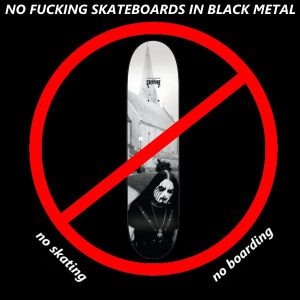Year of release: 2021
Label: Trollmusic
Rating: 8,5 / 10
For many years this release was perhaps the most anticipated of all for me. DE ARMA is known to the general public as a project by Andreas Petersson from ARMAGEDDA, owner of Nordvis Productions, and most metalheads remember about it only thanks to the first release - a split with FEN. On that split, DE ARMA performed a gloomy atmospheric metal that deserves all the praise. However, a more important event happened in 2013 when their debut album “Lost, Alien & Forlorn” was released. DE ARMA presented a melancholic mixture of dark rock, gothic, atmospheric metal and something deeply nostalgic, penetrating into the very essence of emotions. By and large, this album is forgotten today. It was released on the small label Trollmusic, whose releases are immediately given to the distribution of Century Media, was not particularly advertised, and its target audience today is no less difficult to determine than 8 years ago. In 2013, the album was considered a part of the "atmospherick" cathegory, (i.e. half-assed metal for depressive teenagers and hipsters) but “Lost, Alien & Forlorn”, to put it mildly, was very far from from some fucking WOODS OF INFINITY or, god forbid, HERETOIR, so it never worked for them. Orthodox metalheads, on the other hand, turned a deaf ear to it.
However, for me “Lost, Alien & Forlorn” was a real revelation. It was my favorite record for five years in a row, and I still can't articulate why. It is not flawless, but its melancholy, probably, perfectly coincides with my own, so the album almost immediately became spoke to me and was listened to dozens of times, both in its entirety and in separate songs.
With “Strayed in Shadows” the band almost succeeded in repeating its success with your humble servant. On the second album, the band took on a more consistent style, clearing the music of unnecessary elements. One such element was Frank Allain the vocalist of FEN, who has sung in DE ARMA since its inception. His clear voice perfectly complemented the emotional palette of the music, but Andreas, who took on the duties of a vocalist, also did his job quite fine. He sings lower than Frank, in a more powerful and courageous voice, without breaking into screams. Guest female vocals are used on two songs. Only once for the entire album, on the last track, a couple of lines are performed in extreme style. Otherwise, “Strayed in Shadows” is completely devoid of elements of extreme metal, and you can say it's not metal at all anymore. DE ARMA's music has acquired a clear resemblance to FIELDS OF THE NEPHILIM and, for example, KILLING JOKE.
The debut album was dedicated to poverty and its aesthetic companions - decline, depression, loneliness, hopelessness, grief (no socialistic bullshit, thankfully). “Strayed in Shadows” is not burdened with the concept (although in general it is inspired by the poems of Emily Dickinson and even quotes them), so the songs allow themselves a little more liberties. "Pain of the Past" is an emotionally nostalgic and very dynamic story of painful memories and loss. “City Vultures” transmits an encrypted anti-religious message, spiced up with thoughts about the finiteness of all things. The semi-ballad “Illusions of Love” speaks for itself with its name. "Funeral in my Brain" is written on the verses of the aforementioned poet, and I will probably refrain from analyzing these lyrics. The weird ending of the song reminds me of DOOR INTO EMPTINESS in a funny way. “Horror in the Dark”, about fear of oneself (as I understand it), begins rather stupidly, but ends with a wonderful rocker rhythm accompanied by a tinkling guitar, as only DE ARMA can do. “Days of Judgment” is another semi-ballad about love, only about some strange one, which everyone around condemns. I hope DE ARMA meant love, for example, to Hitler or pineapple pizza, and not something more "modern", if you know what I mean. “You Were Blood” is the most metal song on the album, with blast beats and a grain of extreme vocals. Its theme is not entirely clear to me, but it once again mentions the theme of wandering between worlds. Combined with the artwork, which was clearly inspired by The Dark Tower, this suggests that Anders was simply trying to imagine himself as Roland Deschain. Or maybe not, because the title of the album fully embraces the torment of the hero of all the lyrics at once.
“Strayed in Shadows” is released as a Jewelcase CD with a 12-page booklet containing a couple of photos, recording information and lyrics. The art was only enough for the cover and back side; the predecessor, of course, was richer in design. Details on a video. The album is, without a doubt, wonderful, and I strongly recommend listening to it, although hardly one of the 120-150 people that regularly read Bagnik Zine will buy on my outpourings. “Strayed in Shadows”, perhaps, fell slightly short of its predecessor in terms of music quality. It has a little more bad segments. However, this is the case when the musical constructions themselves are secondary. DE ARMA is the music of feelings, which are quite mature, deep and intricate here. Today you may dislike these songs but tomorrow they will seem like masterpieces.



